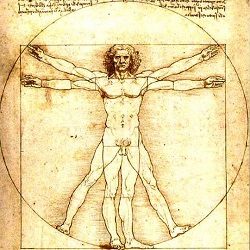
It is unfortunate to note that A.C. Grayling’s lecture on Humanism is so typical of the arrogance that is prevalent among New Atheist advocates whenever they talk about religion in general and Christianity in particular. The basic thrust of his view on religion is that its adherents are by nature unthinking and close-minded, that they are therefore probably unintelligent and easily duped by fanciful stories of unseen realities or entities.
Grayling tries to contrast a humanistic attitude to life, to that of a blind acceptance of religious doctrine. In the process he creates and then burns one straw man after another.
In Grayling’s mind, it seems, there isn’t even the possibility of being a reflective theist. If you are a theist, then by definition you do not think for yourself or take responsibility for your actions. For why else would you need to believe in God?
Grayling aims at the low hanging fruit as an example of this. He doesn’t care to mention the scores of Christian philosophers, scientists and theologians in academia whose work and careful reflections would make even Socrates envious.
Instead he chooses to mention the Creation Museum. Does he really think that he has offered his listeners the best example of careful Christian reflection? If he does, than he is willfully ignorant; if he doesn’t, then he merely shows that it is far easier to mock an easy target, than engage with serious scholarship. In either case his biases are glaring.
The Christian intellectual tradition, but especially in the last 50 years of scholarship, is in itself an unmistakable denial of each and every one of Grayling’s suggestions that theists cannot and do not take seriously questions about the nature of humanity, morality and society. His caricatures might be useful rhetoric for an audience of “proud atheists”, but it does nothing to suggest that Grayling is actually concerned about presenting believers in a fair and respectful manner. In fact, such caricatures are downright unthinking and unreflective.
So convinced is Grayling of religious prejudice that he asserts that debating “religious people” will not change their minds. What Grayling fails to mention is that this is just as true for debating committed atheists. He makes it sounds as if the unwillingness to be persuaded otherwise, is inherent to religious belief, when in fact it is the function of being deeply committed to anything.
Nevertheless, religious commitment need not be unreflective as Grayling so desperately would like us believe. In fact, Grayling realises this, because he rightly points out that the ideas put forth in a debate are meant to influence the undecided in the audience. But why shouldn’t it be the case that the undecided will be persuaded by thoughtful theistic arguments? Undoubtedly Grayling is committed to a particular point of view and therefore would deny that such arguments exists. But this simply begs the question and Grayling comes across as blissfully ignorant of his own prejudices.
If humanism is about integrity, honesty and doing one’s best, then Grayling hasn’t lived up to its lofty ideals with the kind of sweeping statements he has made about the kind of people religious believers are.

Leave a Reply